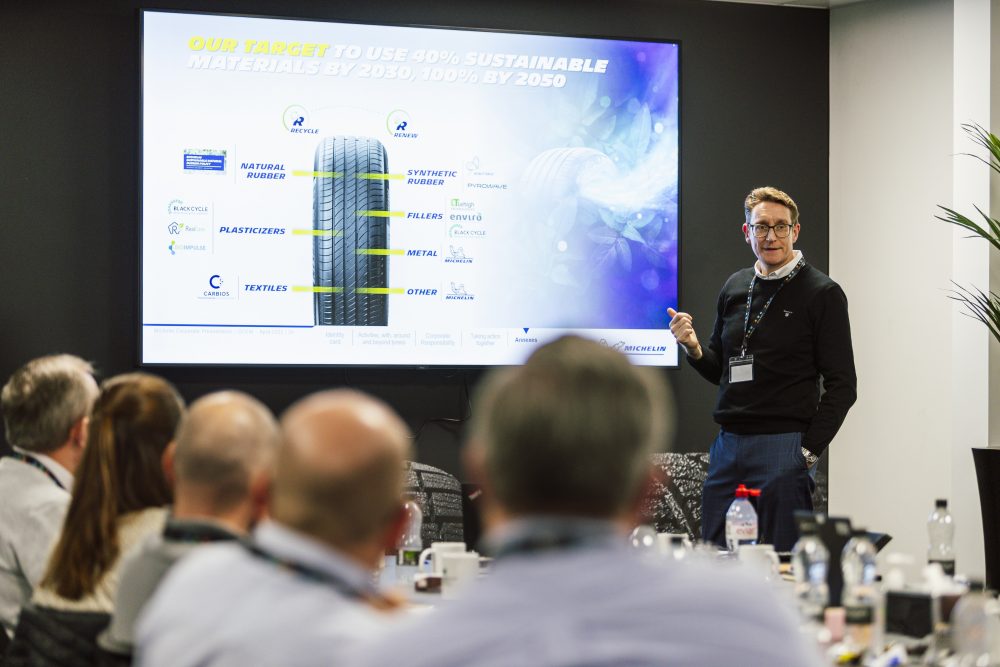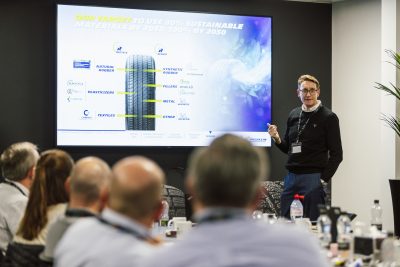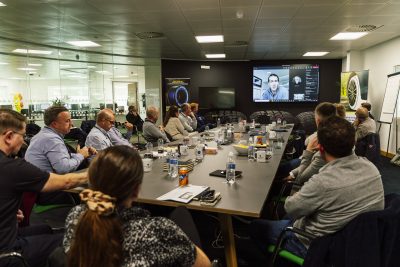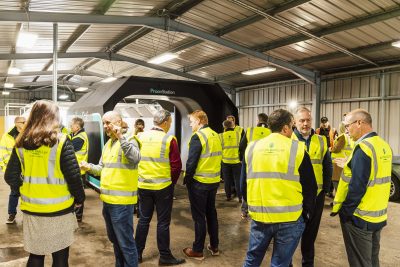- Sustainability issues facing the tyre industry were a key focus of discussions at first meeting of the Michelin Fleet Panel in four years
- Lack of tyre data from electric vehicles was identified as a major challenge for the industry
Members of the Michelin Fleet Panel have called for the industry to accelerate progress towards more sustainable tyres and improve support for fleet managers transitioning to electric vehicles (EVs).
The panel, comprising representatives from some of the UK’s biggest leasing, fleet management and rental companies, as well as several major end-user fleets, addressed a series of industry challenges at a meeting held at the Wakefield site of Aston Barclay, the independent remarketing group and vehicle auction house.
Chairing the Michelin Fleet Panel, Martin Thompson, Michelin’s Brand Manager UK & Ireland, briefed the panel on the manufacturer’s target of using 100 per cent sustainable materials in its tyres by 2050, and 40 per cent by 2030, and urged the industry to make quicker progress in reducing the environmental impacts of tyres.
He also reinforced the importance of extracting the full performance out of every tyre, saying: “It’s vitally important we better educate fleet managers and customers about how to avoid unnecessary raw material wastage, specifically that it is safe to use tyres down to the 1.6mm legal tread depth limit.”
Some panel members called for the industry to put a greater focus on analysing tyre wear on EVs, saying the current lack of data was making it difficult to make informed buying decisions.
Thompson said: “Leasing and rental companies want to be able to communicate that data to their customers so they can speed up their transition to EVs. Michelin is manufacturing tyres specifically for EVs to help with tyre wear and battery range, and that’s a message we are communicating more widely.”
Lorna McAtear, Head of Fleet at National Grid, who manages 9,000 vehicles, including 1,500 EVs, said the industry needed to tackle some myths around EVs. “There are some misconceptions that all tyres wear out quicker on EVs. The industry needs to deliver clearer messaging to ensure people have the best performing and safest tyres on their EVs, and that they don’t cost more than tyres for internal combustion-engined vehicles.”
She added: “It was an excellent panel for learning about the innovations in tyre developments being driven by Michelin and its partners. I was reassured that they are working hard on sustainability and going in the right direction.”
At the first meeting of the Michelin Fleet Panel since the pandemic, Michelin representatives and its partners, including Canopy Simulations and MICHELIN Connected Fleet, gave presentations of their work towards more sustainable mobility, whilst ProovStation provided a live demonstration of its AI-powered inspection scanner. Aston Barclay is the first company in the UK to install the technology, deploying the system to quickly and accurately appraise vehicles ahead of auction.
Matt Childs, Marketing Manager at MICHELIN Connected Fleet, said the next generation of drivers and decision-makers are increasingly aware of sustainability and vote with their wallets on what, where and who they work with. “With connected fleet management solutions, this is an opportunity rather than a challenge. Turning the data into actions can help fleets operate more efficiently and unlock savings,” he said.
Sean Russell, Chief Marketing Officer at Aston Barclay, said: “It was a pleasure to host the Michelin Fleet Panel, which was a fabulous knowledge sharing and networking event. We received some excellent feedback and we look forward to collaborating with our partners again in the future.”
The Michelin Fleet Panel has been meeting for more than 20 years; membership is voluntary and participants are not required to be Michelin customers.
About Michelin
Michelin’s ambition is to sustainably improve its customers’ mobility. The leader in the mobility sector, Michelin designs, manufactures, and distributes the tyres best suited to their requirements and uses as well as services and solutions to improve transport efficacy. With its offers Michelin allows its customers to enjoy unique moments when traveling.
Michelin also develops high-technology equipment intended for multiple fields. Based in Clermont-Ferrand, Michelin is present in 175 countries, employs 132,200 people and operates 67 tyre factories that, together, produced approximately 200 million tyres in 2022. (www.michelin.com)
More information on how Michelin assists transport businesses achieve its sustainability goals and run more efficiently can be found at business.michelin.co.uk.
MICHF/354/23






